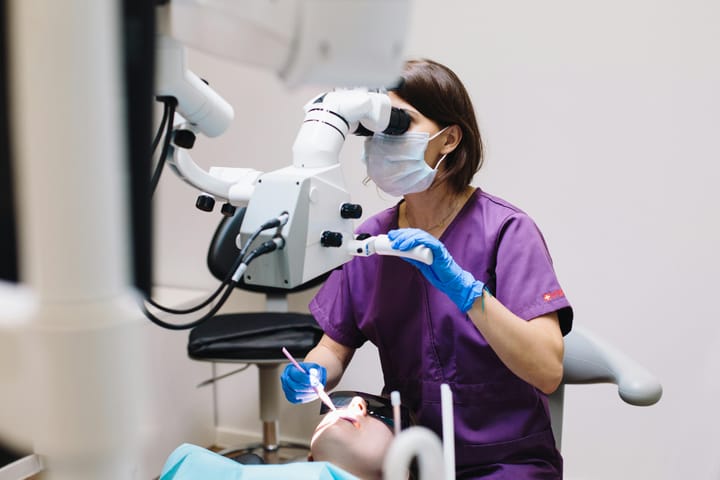The Democrats held their final debate before the primaries begin – everything you should know about their health care views

A few minutes every morning is all you need.
Stay up to date on the world's Headlines and Human Stories. It's fun, it's factual, it's fluff-free.
On Tuesday, six of the 12 remaining United States Democratic candidates for president met on a debate. This was the seventh debate for the Democrats of this election season and the last before the first primary, which will occur in Iowa Feb. 3.
Of the six candidates who qualified to appear on the debate stage, four are considered among the likely candidates to earn the party’s nomination. The winner will go on to face incumbent US President Donald Trump in the 2020 election, which will be held Nov. 3, 2020.
Poll after poll has regularly shown that health care is the number one concern among American voters and that’s no different in a poll from RealClear Opinion Research. With so many differing opinions on the candidates, it’s important to know who each candidate is and what they stand for. Here is what you should know.
Tuesday night’s debate
The debate was held at Drake University in Des Moines, Iowa on Tuesday and aired on CNN. Prior to the debate, there were a number of issues surrounding the candidates and pundits were wondering how they would play out in the debate.
One issue included a CNN report that Sen. Bernie Sanders told Sen. Elizabeth Warren a woman couldn’t win a presidential election. Sanders has stated his words were mischaracterized and he believes a woman could win.
Sanders and Warren are both considered part of the Democratic Party’s left wing and have generally had a friendly relationship. Now, though, supporters of each candidate have worried about a possible rift between the two candidates that could hurt both of them.
The debate was taking place with the backdrop of the US’s tensions with Iran and a possible escalation of fighting. At the same time, Trump is facing impeachment, with Speaker of the House Nancy Pelosi calling a vote to send the articles of impeachment to the Senate on Wednesday.
Six candidates qualified for the debate
Each Democratic debate has a qualification threshold set up by the Democratic National Committee. While there are currently 12 candidates in the field (down from a total of 28), only six candidates met the qualification threshold. So far, three candidates who appeared in previous debates – Julián Castro, Marianne Williamson, and Cory Booker – dropped out of the race in January.
To appear in the debate, candidates were required to raise money from 225,000 unique donors (at least 1,000 in 20 states each). They also had to achieve one of two polling thresholds. Either they had to receive 5 percent in four separate polls or 7 percent in two separate polls.
Six candidates reached the threshold: Sanders and Warren, former Vice President Joe Biden, South Bend (Ind.) Mayor Pete Buttigieg, Sen. Amy Klobuchar and billionaire philanthropist Tom Steyer. Steyer was the last to qualify, doing so the day before the DNC’s qualification deadline.
A seventh candidate, former mayor of New York City Michael Bloomberg, has been rising in the polls since entering the race in November 2019. As a result, he achieved the polling threshold necessary to appear in the debate. However, Bloomberg, who is a billionaire, is mostly self-funding his campaign, and therefore did not achieve the donation qualification.
Who are the candidates?
According to FiveThirtyEight, a poll aggregating site that uses statistics to analyze election probabilities, four candidates – Biden, Buttigieg, Sanders, and Warren – have the highest odds of winning the nomination, based on early polling. We’ll call those four candidates the top tier.
Of those four candidates, they are usually described as being centrist or leftwing. Here’s a quick overview of them:
Top tier – centrists
Biden was vice president for two terms under former President Barack Obama. Geoffrey Kabaservice called Biden “the ultimate centrist Democrat,” with his policies appealing to those voters whose political opinions are neither far right nor far left. Before being vice president, Biden served in the US Senate, representing Delaware from 1973 to 2009.
One of the issues that has been highlighted in this campaign is Medicare for All. This is a leftwing proposal that would provide healthcare to all residents of the United States. Biden opposes this policy, instead supporting the expansion and strengthening of the Affordable Care Act (often referred to as Obamacare), which was passed while he was vice president.
Buttigieg is the mayor of South Bend, Ind. He entered the race supporting policies that are generally considered leftwing, including M4A, but has since shifted toward the center. He now supports what he calls “Medicare for All Who Want It,” a public option which would combine private and government health insurance.
Buttigieg, the youngest candidate in the race, was elected mayor of South Bend in 2012 but has no prior governing experience. He served in the US Navy from 2009-2017. Buttigieg, who is openly gay and married, appeals mostly to college-educated voters. He has struggled to draw support from black voters, which would hurt him, as African-American voters could make up to 25 percent of the primary voters.
Top tier – leftwing
Sanders has been a senator for Vermont since 2007 and was the state’s representative in the US House from 1991 to 2007. He is registered as an independent, not a Democrat, but this is his second time running for the Democratic nomination. He also ran in 2016 against the eventual Democratic nominee, Hillary Clinton.
Sanders calls himself a democratic socialist, and is outspoken about his opposition to corporate interests in the political sphere. He has long supported M4A (longer than any other candidate) and funds his campaign with small donations, having received an average of $18 from 5 million donors in 2019. Beyond the United States, Sanders has gained support from international leftwing politicians.
Warren became the US Senator for Massachusetts in 2013. Prior to running for the Senate, she was a lawyer and law teacher. Warren built up her profile in the years following the 2008 economic collapse by advocating for increased scrutiny and restrictions on banks and Wall Street. As a lawmaker, she has lobbied against corporate interests and centered herself as the anti-corruption candidate.
Like Sanders, Warren supports M4A and advocates for making the economic system fairer for all people. However, she has called herself a “capitalist to my bones,” and the Sanders campaign has criticized her for only appealing to college-educated Democrats.
Klobuchar and Steyer
The other two candidates on Tuesday’s stage, Klobuchar and Steyer, haven’t drawn as much attention nor scrutiny as the top tier. Klobuchar, a senator from Minnesota, has of late been gaining some traction as another centrist. Like Biden, she opposes M4A and believes the best way to fix the healthcare system is to improve and expand the ACA.
Steyer, who has no experience in politics, has said climate change is his “number one priority.” This is despite having accumulated much of his wealth by investing in coal, oil, and gas, chief culprits in the changing climate. Similar to Buttigieg, Steyer opposes M4A, and wants to build up a public option in which the government could negotiate prescription drug prices.
Have a tip or story? Get in touch with our reporters at tips@themilsource.com




Comments ()